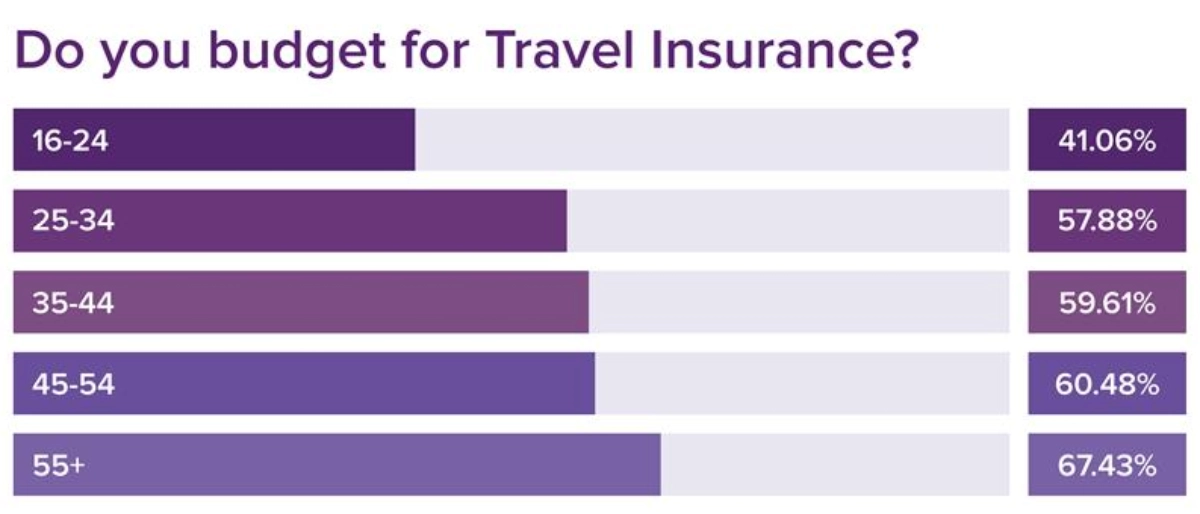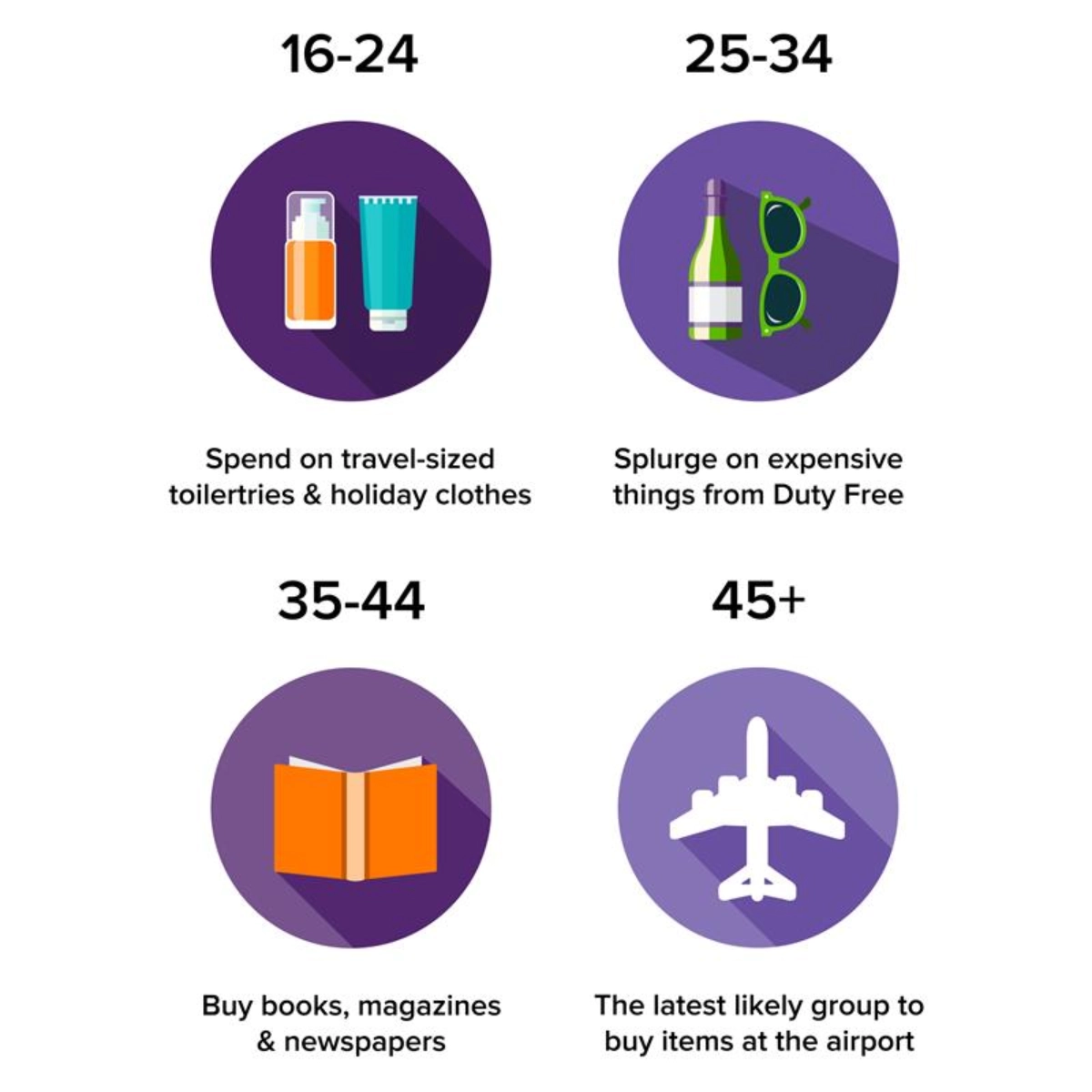How do you budget for holidays? Our findings…
Most of us value our holidays as an important opportunity to switch off and unwind. But, with the rise in cost of living, are we making the most of our spending money? And what exactly are we planning on spending it on?
We asked 2,500 people who live in the UK aged 16+ for their thoughts…
2 in 3 people don’t want to put a price on fun
Holidays give us an opportunity to have something to look forward to. They allow us to escape our everyday lives – even if just for a few days. The last thing we want to be doing is worrying about money.

When we’re going on holiday, 2 in 3 people (66%) agree that they don’t want to put a price on having fun and don’t want to think about money when they’re there.
On average, UK holidaymakers are budgeting £420 per person to spend while on a one week holiday – which includes things like food, drink and activities.
Data from Statista also found that UK holidaymakers spend an average of up to £4,000 on holidays per year. This, along with our findings, suggests that we’re spending a lot of our hard earned cash on investing in time-out and our own life experiences.

What you include in your holiday budget depends on how old you are
When we’re planning a holiday, the first thing most of us think of (other than where we’re going) is where we’re staying. So it’s no surprise that 83% of people told us they budget for accommodation.
That’s closely followed by spending money at 81% and flights at 80.5%.
But the things you find important to add to our holiday budget changes depending on how old you are…
Interestingly, 16-24 year olds were the only group that are more likely to budget for spending money on holiday than anything else. That’s 77% of this group budgeting for holiday money in comparison to 72% of young travellers who budget for accommodation and 75% who include flights. This might suggest that younger travellers place more importance on spending their hard earned cash on experiences rather than getting to the place itself.
Although this might sound like younger travellers are more frivolous, overall the 16-24 age group are actually a lot less likely to allocate budget for most things on holiday as compared to any other age group – holiday wardrobe aside!
Of those who do budget for a holiday, 62% of people go as far as to set themselves a daily budget. The only age group that was less likely to make a daily budget was the over 55s. This might be down to experience of knowing how much they’re likely to spend, or having a greater financial flexibility to not be bothered by limits if they feel like splurging.
When we’re setting daily budgets, the vast majority of us (82.5%) budget up to £60 per day to cover things like food, drink and activities.

1 in 5 people don’t stick to their holiday budget
It looks like most of us are actually pretty good at sticking to a holiday budget when we set ourselves some limits. But nearly 1 in 5 of us (17.49%) rarely or never stick to a holiday budget.
Over 55s are the main culprits, with just over 1 in 4 (26.38%) throwing the budgeting rulebook out of the window! That’s in comparison to over 60% of 16-24 year olds who always or often stick to their budget.
1 in 4 blow the budget by £41-£50 a day
So, we’ve said that we mostly like to stick to our budgets. But we also know that sometimes the allure of a fancy restaurant or an exciting activity can push us over our limits. Or sometimes we just get it wrong when budgeting. The cost of food and drink in different countries can vary wildly, so if we’re budgeting based on our expectations of a UK holiday, then things can go astray.
A quarter of holidaymakers (24.35%) told us that when they overspend, they spend an extra £41-50 per day! Shockingly, nearly a fifth (19.39%) also admitted that they tend to overspend by an average of £67 a day.
So when we’re pulling our budget together, you might want to research the average meal costs, or budget for any extra activities if you really want to stick to your bottom line.
We spend most of our holiday budget on experiences
Far from lounging by the pool and indulging in an all-inclusive lifestyle, our data suggests that we’re eager to explore a world that’s largely been closed for the past two years.
We found that nearly 3 in 10 people (27.2%) spend the majority of their holiday budget on sightseeing and visiting new places.
Spending most of our hard earned cash on fancy restaurants came in as a close second with nearly 2 in 10 (19.96%) people eating their way through their holiday budget.

When we look into how this changes with age, our data suggests that our priorities for where we want to spend our money changes as we get older…
16-24s prioritise snap-worthy food
For younger holidaymakers, 16-24 year olds spend most of their budget (21%) on luxury culinary spots. Maybe they’re taking a snap or two of their envious food for their ‘grams while they’re there!
But there’s not a lot in it for 16-24 year olds, who closely prioritise food, culture and fun activities in their holiday plans.
Over 55s prioritise sightseeing and culture
In comparison, over 55s clearly prefer sightseeing, with 31% of people spending most of their money on excursions and local culture. Only 16.6% of the same group spend most of their money on fancy food while just 2.9% spend most of their money on fun activities. That’s just a tenth of what we see with 16-24 year olds.

More than 4 in 10 people aren’t budgeting for travel insurance
Most people include travel insurance in their holiday budget… but only just. Surprisingly, it’s just over half of people (55.4%) that add travel insurance to their budget. People are more likely to think about the cost of travel to the airport (59.6%) than they are about covering their holiday plans.
This means that more than 4 in 10 people might not be buying travel insurance at all. If they aren’t buying travel insurance, they’re running the risk of having a hefty bill if they run into medical emergencies abroad.
When we look at this by age, we can see a clear difference in opinion.

There’s a huge leap in people adding travel insurance to their budget as they get older. Only 41% of 16-24 year olds think about cover, which grows to around 60% of 25-54 year olds and then jumps again for those 55+ to 67.4%.
This might show the growth in financial independence. Younger travellers can still depend on their parents to sort out their cover versus those who have fled the nest taking on their own responsibility.
For the 55+ group, this increase in budgeting towards travel insurance might also suggest a deeper understanding of the risks when travelling abroad, especially if they need insurance for medical conditions.
2 in 5 regret buying holiday tat
One in ten people say they spend most of their money on holiday souvenirs.
The main culprits for spending on souvenirs are 16-24 year olds with 13.8% of them choosing to spend most of their holiday budget on new treasured items. This figure drops significantly in all other age groups, from 9.7% of 25-34 year olds to 8.6% of 55 year olds.
Souvenirs can be a great reminder of the time we’ve spent on holiday. But are they always treasured reminders or are they a waste of time?
Well, it turns out that 42.7% of us regret buying the holiday tat that came home with us.
Given that 16-24 year olds plan to invest their hard earned cash on souvenirs more than any other age, it might not be a surprise that they are the group that regret their decisions the most.
In fact, you’re twice as likely to never buy holiday souvenirs if you’re over 45 than your younger counterparts. That might be because we learnt our lessons long ago. Or, when we do buy souvenirs as we get older, we are wiser with our choices and so are less likely to regret buying them.

3 in 5 people buy things they don’t need at the airport
With a few hours to wait around the captive market that is the airport, it’s no wonder we’re spending some of our holiday money there.
Research shows, we’re mostly spending our money on meals or drinks at the airport (74.2%), as well as snacks for the plane (64.6%).
Eating meals in the airport can be a great way of passing the time. This is especially true if you’ve had to rush to the airport missing a meal – or if you plan on fueling up before your flight to avoid the expensive and questionable in-flight food.
The only group that’s more likely to buy snacks for the plane than buying a meal or drinks at the airport are 16-24 year olds.
With our spending appetite whetted, it’s not surprising to hear that 62% of people agree that they spend their money on things they don’t need at the airport.
Our airport buys – food and drink aside – varies by age:
- 16-24 year olds love to buy mini toiletries and clothing more than any other age group.
- 25-34 year olds splurge on expensive things from Duty Free – more than any other age group.
- 35+ year olds love to read and spend most of their money on magazines, newspapers and books. 35-44 year olds are the age group that choose to spend most of their money in this area.

The over 45s are less likely to buy items at the airport. Maybe as more seasoned travellers, by 45 we’ve learnt the hard lessons of passing time in an airport without feeling the pull of food, drink and shopping.

With a bit of pre-planning and thinking about your time in the airport, you could help reduce unwanted costs and help your holiday budget.
You could save your budget by making a few quick changes:
- Restaurants Could it be cheaper to book an airport lounge with all-inclusive food and drink rather than buying food in restaurants?
- Books Instead of buying your books at the airport, visit your local library to borrow books for free. Charity shops are another option to find some cheap reads – you never know what hidden gems you’ll find and you’re also helping to support a charity at the same time.
- Toiletries Although buying miniatures at the airport can be one way to get around the 100ml limit if you’re travelling with a carry-on, it’s often a lot cheaper to buy missing toiletries at your destination. Most resorts will have supermarkets available to stock up on items at a much cheaper price. To save some worry before you go, you could even look up your nearest supermarket online.
- Book parking early! When you book things like airport car parking early enough, you might save money on extra unwanted costs that we might not have considered as part of our holiday budget.


